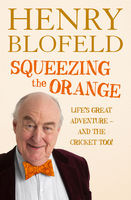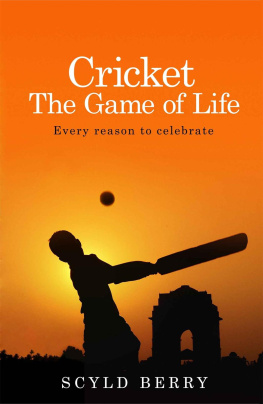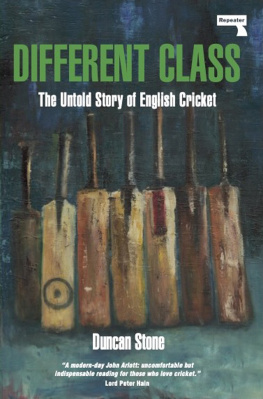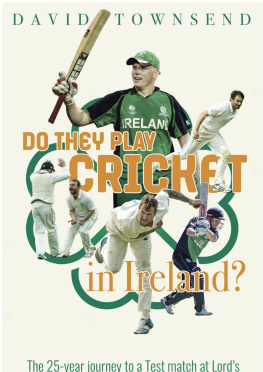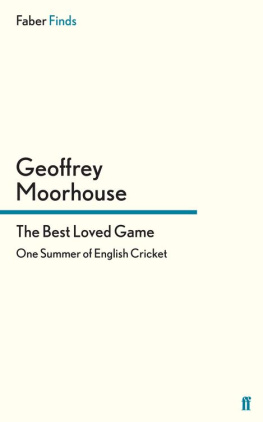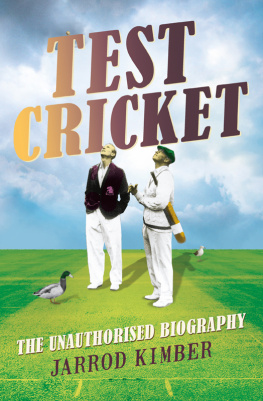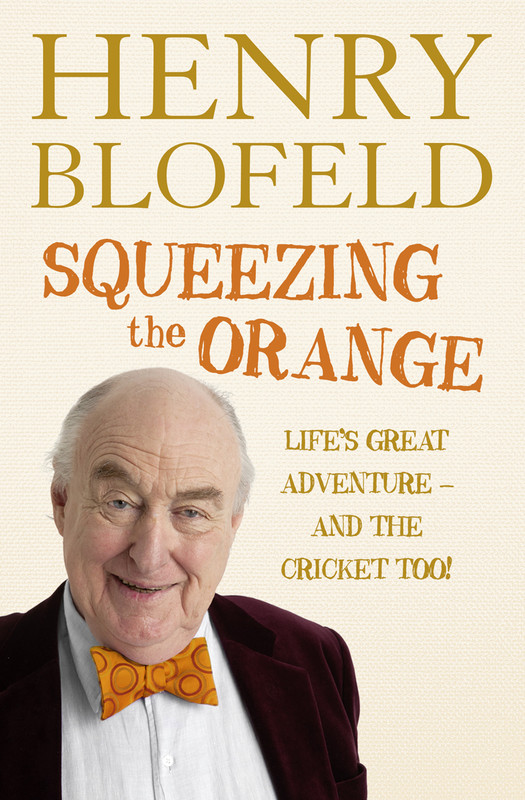
About the Book
Nicknamed Blowers by the late Brian Johnston, Henry Calthorpe Blofeld is one of the best known and best loved sports journalists of all time. With his trademark bow-tie, his unmistakeably fruity tones and his delightfully idiosyncratic observations, both on and off the cricket field, Blowers has become a national institution.
He joined the legendary Test Match Special team in 1972. During his career as a journalist and a commentator, he has travelled extensively to the many parts of the world where cricket is played.
Although beset by illness (including major heart surgery in 1999), Henry Blofelds philosophy on life is a simple one: live every day as though it were your last and squeeze every last drop out of every waking moment. Even now, at the age of seventy-four, he continues to play by his own rules.
InSqueezing the Orange Blowers looks back affectionately on his childhood and his colourful career with all the wit and good humour which is the hallmark of this remarkable and quintessential Englishman.
About the Author
A consummate showman, raconteur, collector, gourmet and connoisseur of fine wines, Henry Blofeld was born in Norfolk and educated at Eton and Cambridge. He is the author of several books including The Packer Affair, My Dear Old Thing: Talking Cricket and A Thirst for Life. For the past few years he has been touring all over the UK with his one-man show, An Evening with Blowers, as well as many other public speaking engagements. He was awarded an OBE in 2003.
HENRY BLOFELD
Squeezing the Orange

For Valeria, whose love, interest, humour and enthusiasm has made all the difference.
CONTENTS
Cover
About the Book
About the Author
Title Page
Dedication
Preface
1. Grizel and Shelling Peas
2. A Wodehousian Education
3. The French Womens Institute
4. Queen Charlotte and a Milk Train
5. Mad Dogs and Honeymoons
6. Slum Dogs and Maharajahs
7. A Lie at the Blue Mountain End
8. Mugabe at the Pavilion End
9. A Modest Dinner at Alresford
10. The Traffic Cop in Faisalabad
11. A Heavenly Rejection
12. The Man in the Stocking Mask
13. Norfolk at the Albert Hall
14. Middle-Aged Junkies in Kandahar
15. White Vans and Chewing Gum
Picture Section
Acknowledgements
Index
Photographic Acknowledgements
Copyright
Extract from Thanks, Johnners Jonathan Agnew
About the Publisher
Preface
I find the older I get the more time I spend thinking back to my early life which I suppose turned me into the person I have become. I have found also that by looking back on this period at the age of seventy-three, I am able to look at it from a much more relaxed perspective than when I last wrote about it fifteen years ago.
The nasty bits dont hurt or matter as much as they did and the best bits seem to have become even more fun. There is no point in trying to blame anyone but yourself. It is much better to throw your head back and have a thoroughly good laugh. As a result, maybe, I find my first thirty-odd years much more interesting than the rest of it, when effectively the die has been cast.
My early upbringing, strange by todays standards; my traditional education which, after a homesick start, I enjoyed hugely; a nasty accident; Cambridge; the City and then my two extraordinarily lucky starts in both journalism and broadcasting have all left their mark. I have, therefore, written at some length about my early life and tried to bring alive some of the more remarkable characters who had an influence on me as I started out.
I have spent a life unashamedly in pursuit of fun and this book is meant to be a reflection of that. I know I have been horribly self-indulgent and hedonistic and altogether pretty selfish, but I hope also that I have communicated a fair measure of enjoyment and pleasure and it is this with which I am trying to deal now.
After describing how it all began, I decided not to go on in this vein in case it developed into a boring chronology of cricket tours and matches. I have talked about our commentary box and its inhabitants and one or two important occurrences along the way, but without, I hope, failing to see the funny side of it all.
If I have developed a philosophy, it is ridiculously simple. I regard every day as an orange, from which I try and squeeze every last drop of juice before moving on to tomorrows. This book is an attempt to bring a glass or two of that delicious juice back to life and hence the title.
Henry Blofeld
London, 2013
ONE
Grizel and Shelling Peas
According to my mother who had drawn the short straw at the font when she was christened Grizel my birth was less eventful than my conception. Grizel did not muck around: she was always earthy and to the point. When my wife and I were first married, she encouraged us to waste no time in starting a family, as she felt that delay might have a discouraging effect on procreation. I was lucky, she told me, because I bred at the shake of a pair of pants adding, with emphasis, Which was just as well, as it was all I ever got. That, I hope, was not entirely fair on Tom, my father, who may not have been one of Casanovas strongest competitors, but I am sure he had his moments. In any case, this particular pair of pants must have shaken with vigour, no doubt as part of the Christmas festivities, in 1938, as late in the evening of the following 23 September I made a swift and noisy entrance into this world. Tom will have been sitting in the drawing room dealing with a whisky and soda and The Times crossword puzzle while Dr Bennett conducted the events upstairs. I dare say this was not too arduous a production for him, for on another occasion Grizel said, I found that having babies was as easy as shelling peas. I can never understand what all the fuss is about. So that was that.
Tom and Grizel were fiercely Edwardian in their beliefs about bringing up children, and the three of us Anthea was ten years older than me, and John seven had a tougher time of it than children have now. Of course we were all born with whacking great silver spoons in our mouths, but I dont know how you can choose your parents. Youve got to get along with what youve got. Im sure Anthea and John had a stricter start to life than I did. In the thirties nannies and nurserymaids abounded, and Tom and Grizel will have been even more remote figures for the other two than they were for me. I probably had an easier time of it because during the war Nanny had to go back home to Heacham in west Norfolk to look after her sick mother. As a result, Grizel, with the help of any temporary nurserymaid she could lay her hands on, had to roll up her sleeves and do much of the dirty work herself, so she and I had a closer relationship than she did with Anthea and John. I am sure the love between parents and children was just as strong then as it is now, but in those days it was not the upfront jamboree that it has become. In fact, when you look back at it all those years ago, it seems harsh and at times almost cruel. My friends were brought up in much the same way that was just the way things were done. I should think my parents generation felt that life was easy for us compared to the way they themselves had been brought up in the years immediately after Queen Victoria had died. It is all part of the ever-going evolutionary process which has brought us now to the age of the free-range child. So what seemed perfectly normal to us at the time may seem shocking from todays considerably more relaxed perspective.
Next page
